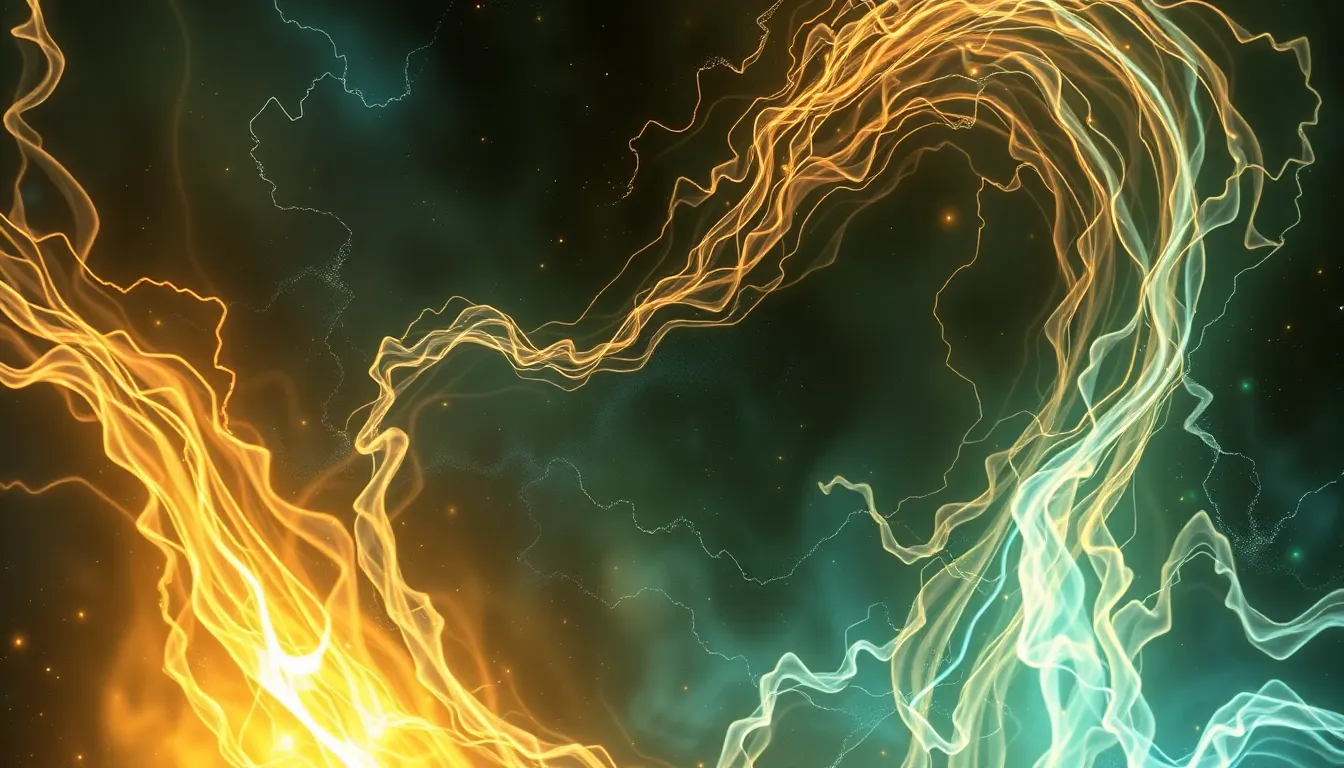The Myth of the Eternal Echo: Legends of Sound and Memory
Introduction: The Allure of Sound and Memory
Sound is an intrinsic part of the human experience, weaving itself into the very fabric of our lives. From the gentle rustle of leaves to the laughter of loved ones, sound shapes our memories and emotions. One of the most fascinating phenomena related to sound is the echo—an auditory reflection that has captivated humans throughout history. This article delves into the significance of sound and memory, exploring the concept of echoes in both nature and culture.
Understanding Echoes: More Than Just Sound
To truly appreciate the allure of echoes, it is essential to understand the science behind them. An echo occurs when sound waves bounce off a surface and return to the listener, creating a delayed repetition of the original sound. This phenomenon can be explained through the principles of acoustics, which studies how sound propagates in various environments.
Culturally, echoes have been interpreted in numerous ways across different societies:
- Symbol of Communication: In many cultures, echoes are seen as a means of communication with the spiritual realm.
- Nature’s Voice: Some view echoes as the voice of nature, reflecting the environment’s response to human presence.
- Metaphor for Memory: Echoes often symbolize memories that linger, reminding us of past experiences.
Historical Legends and Folklore Surrounding Echoes
Throughout history, echoes have found their way into myths and legends. In ancient mythology, they were often personified or associated with deities:
- Greek Mythology: The tale of Echo, a mountain nymph who could only repeat the words of others, illustrates the profound connection between sound and memory.
- Roman Tales: In Roman culture, echoes were often linked to the gods, believed to carry messages from the divine.
Indigenous cultures also hold echoes in high regard, attributing spiritual significance to sound:
- Native American Legends: Many tribes believe that echoes are the voices of ancestors, guiding the living.
- Australian Aboriginal Stories: Echoes in the bush are often interpreted as messages from the Dreamtime, a time when the world was being created.
The Eternal Echo: Symbolism in Literature and Art
Echoes have served as powerful motifs in literature and art, symbolizing various themes:
- Literature: In classical works, echoes often represent the theme of lost love or the haunting nature of memory.
- Contemporary Works: Modern authors explore the interplay between sound and memory, illustrating how echoes can evoke nostalgia.
In visual arts, echoes are represented through:
- Abstract Soundscapes: Artists use sound waves and visual effects to depict the transient nature of sound.
- Interactive Installations: Some contemporary works engage audiences, allowing them to create their own echoes through interaction.
Psychology of Sound and Memory: How They Intertwine
The relationship between sound and memory is a fascinating area of study in psychology. Research indicates that sound can significantly enhance memory retention:
- Cognitive Impact: Certain sounds can trigger vivid memories and emotions, linking past experiences to present moments.
- Soundscapes: Environments filled with specific sounds can evoke emotional responses, influencing how memories are formed and recalled.
Case studies have shown that:
- Music can aid in the recollection of personal memories, often used in therapeutic settings.
- Natural soundscapes, like chirping birds, can enhance feelings of nostalgia and well-being.
Cultural Rituals and Ceremonies Involving Sound
Many cultures incorporate sound into rituals and ceremonies to invoke memories and connect with heritage:
- Traditional Practices: Drumming, chanting, and singing are common in rituals, serving to preserve cultural narratives.
- Music in Ceremonies: Songs passed down through generations often carry historical significance, reinforcing communal identity.
Modern Interpretations of Echoes in Technology
The evolution of sound recording technology has transformed our relationship with memory:
- Sound Recording: The ability to capture and replay sounds has created a new form of echo, preserving moments in time.
- Digital Echoes: Social media platforms allow for the sharing of sounds, creating collective memories that echo through digital spaces.
The Role of Nature in Creating Echoic Experiences
Natural landscapes play a crucial role in enhancing echo phenomena:
- Mountains and Canyons: These environments amplify sound, creating dramatic auditory experiences.
- Wilderness Settings: Experiencing echoes in nature can evoke feelings of solitude and connection with the environment.
Contemporary Echoes: Sound in the Age of Digital Memory
In today’s digital age, the impact of sound on collective memory is profound:
- Social Media: Platforms allow users to share not only images but also sounds, creating a living archive of memories.
- Modern Communication: The rise of podcasts and audio content reshapes our understanding of echoes, making them an integral part of contemporary storytelling.
Conclusion: Reflections on the Future of Sound and Memory
The enduring power of echoes shapes our identity and culture in ways both profound and subtle. As we navigate an increasingly digital world, the relevance of sound in our lives remains a constant. Whether through the natural world, cultural practices, or technological advancements, echoes will continue to resonate, reminding us of our shared humanity and the memories that define us.



